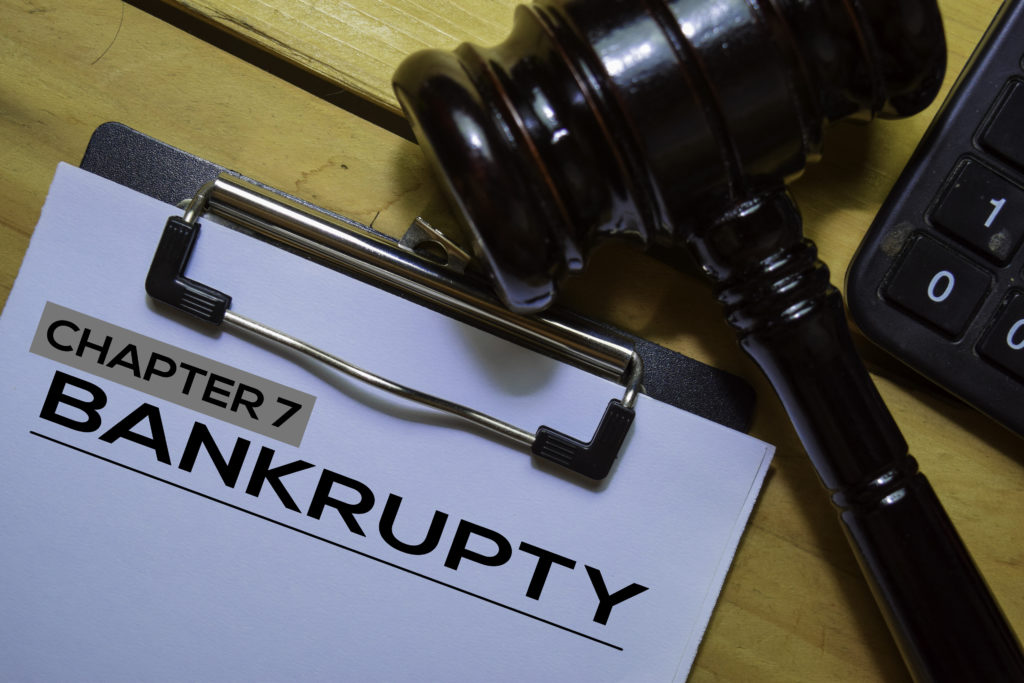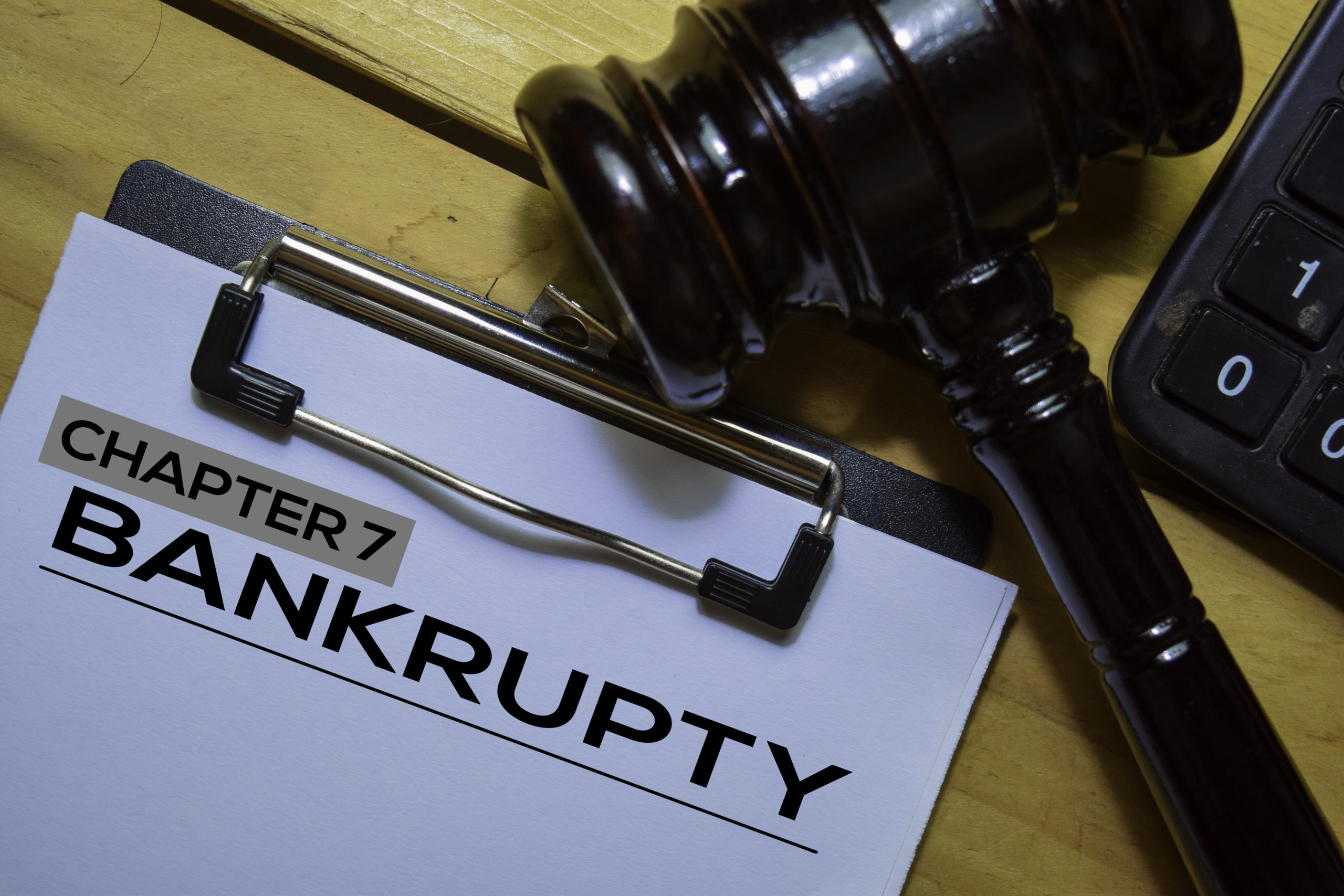In 2005 the United States introduced a new law called the Bankruptcy Abuse Prevention and Consumer Protection Act. As the name indicates, this law was introduced to prevent otherwise solvent people from using the bankruptcy system to escape their debts. This is accomplished by having every person that files for Chapter 7 bankruptcy undergo a “means test,” where they will calculate their monthly income and determine whether it is too high to qualify for Chapter 7 bankruptcy.
The process of performing the means test is very straightforward. An individual (or married couple) will first need to add together all of their sources of income for the previous six months. Income can come from a variety of sources including wages, pension benefits, social security benefits, rents or even the income of a spouse that is not filing alongside the individual. If a person considering filing for Chapter 7 recently lost their job, it may make sense to delay filing until the previous six months more accurately reflect their current income.
| Household Size | Monthly Income | Annual Income |
| 1 | $5,705.33 | $68,464.00 |
| 2 | $6,854.08 | $82,249.00 |
| 3 | $8,729.33 | $104,752.00 |
| 4 | $10,749.50 | $128,994.00 |
| 5 | $11,499.50 | $137,994.00 |
| 6 | $12,249.50 | $146,994.00 |
Once all of the income from the previous six months is added together, divide this number by six and that will be the monthly income. Multiply the monthly income by twelve to get annual income. These numbers are then compared to the New Jersey state median, based on household size. As of May 1, 2020 the median income for New Jersey based on household size is as follows:
Using this chart, the individual will determine whether they fall below or above the state median. If their income falls below the state median for their household size, then they have passed the means test and qualify for Chapter 13.
For example, consider a person who was earning $10,000 per month until three months ago when they lost their job. In the past six months they will have earned a total of $30,000 ($10,000 x 3 + $0 for the other three months when unemployed). Take that $30,000 and divide it by six to get a monthly income of $5,000 and multiply that by 12 for an annual income of $60,000. That amount is below the threshold for any household size, and therefore this person would pass the means test and qualify for Chapter 7 bankruptcy.
The information required to perform the means test is compiled using two forms: 1222A-1 (Chapter 7 statement of current monthly income) and 1222A-2 ( Means Test Calculation). While the means test applies to most bankruptcies, if you meet the requirements on form 1222A-1 you may qualify for Chapter 7 without having to take the means test. This form determines if an individual is exempt by asking about military service and type of debt.
For example, if more than half of someone’s debt is business debt rather than consumer debt, they may be exempt from the means test. An experienced attorney will be able to review a person’s specific financial circumstances and personal history to determine how best to proceed.

Income Above the State Median
On the other hand, just because a person’s income falls above the state median doesn’t necessarily mean that they will not qualify for Chapter 7 bankruptcy. The rules allow for a person with income above the state median to deduct certain expenses from that income and then determine how much disposable income they have.
Disposable income is all income that is left over once a person has paid all of their necessary expenses like food, medicine, and rent. If after making all the proper deductions a person still has too much disposable income, they will fail the means test. Once again this is in line with the goal of the law: prevent those with enough income to pay off their debts from using bankruptcy to avoid repayment. Anyone with high debts who also has a high income is likely better off filing for Chapter 13 bankruptcy, and some cases may have their Chapter 7 case converted to Chapter 13 after failing the means test.
In order to calculate a person’s disposable income, they will need to take a full account of all of their sources of income and all of their expenses. Some expenses are calculated on a national standard like clothes and food, others are on a state standard like rent. It’s crucial that the correct measurement is used for each expense, and that only qualified expenses are deducted from one’s income. Failure to do this accurately can result in dismissal of the bankruptcy proceeding.
The best way to know whether someone will pass the means test and qualify for Chapter 7 bankruptcy is to consult with an experienced attorney who can research their financial situation and make sure that all income and expenses have been properly calculated and applied to the means test. At Rosenblum Law our bankruptcy attorneys are ready to help, call us today.
Yes. If your average income over the past six months is higher than the median income for the state of New Jersey then you may be ineligible to file for Chapter 7 bankruptcy.
Yes, but only if you use an applicable exemption. Tax refunds are considered an asset in a bankruptcy proceeding and like all other assets it will be gathered into the bankruptcy estate and sold off to pay creditors unless an exemption is applied to protect it.
Yes, if you share a household you will need to include your spouse’s income for purposes of passing the means test, even if your spouse is not filing for bankruptcy with you.
If you fail the means test you won’t be eligible to file for Chapter 7 bankruptcy at this time. It’s possible to pass the test after reviewing one’s income sources and making necessary adjustments, or by waiting until the six month lookback period more accurately reflects their average monthly income. If a person still cannot pass the means test after trying these options, they should consider filing for Chapter 13 bankruptcy instead.


